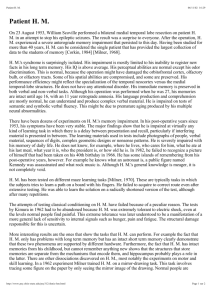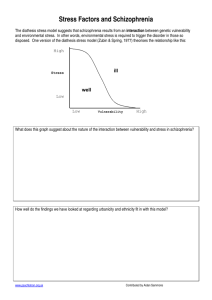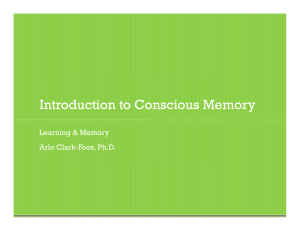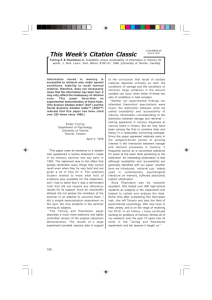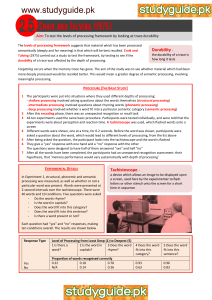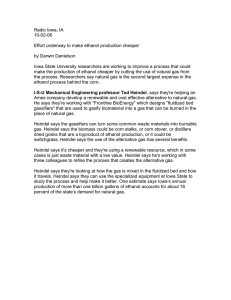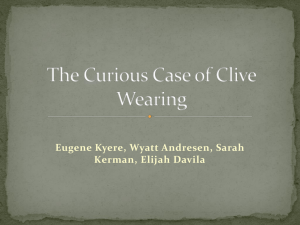Types of memory
advertisement
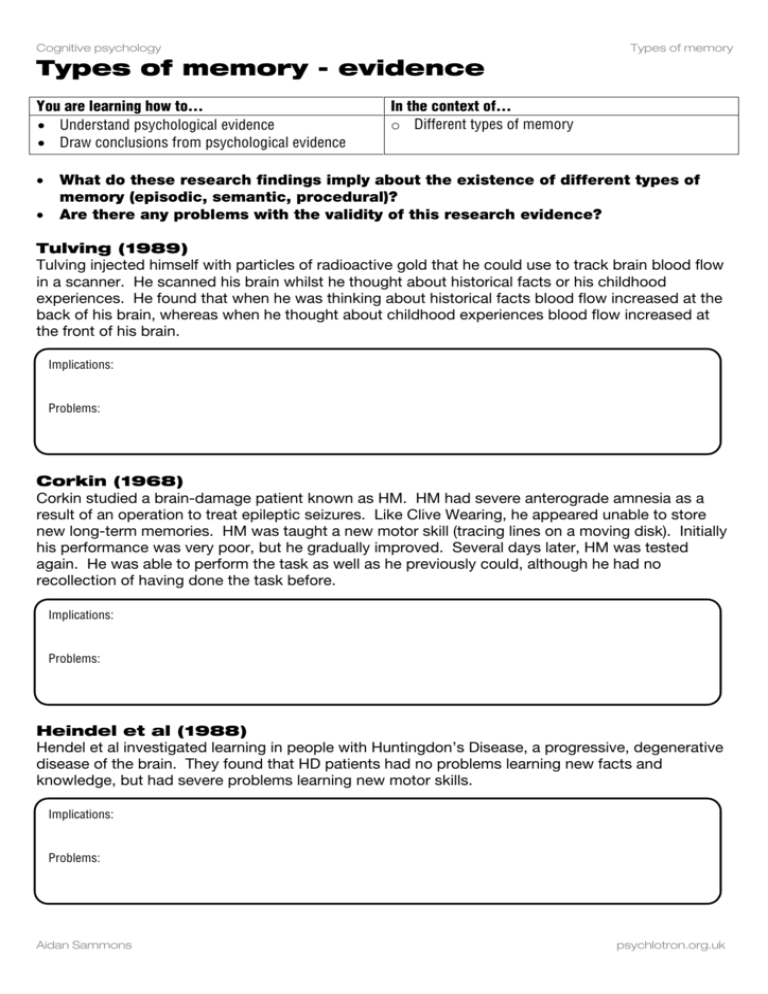
Cognitive psychology Types of memory Types of memory - evidence You are learning how to… • Understand psychological evidence • Draw conclusions from psychological evidence • • In the context of… o Different types of memory What do these research findings imply about the existence of different types of memory (episodic, semantic, procedural)? Are there any problems with the validity of this research evidence? Tulving (1989) Tulving injected himself with particles of radioactive gold that he could use to track brain blood flow in a scanner. He scanned his brain whilst he thought about historical facts or his childhood experiences. He found that when he was thinking about historical facts blood flow increased at the back of his brain, whereas when he thought about childhood experiences blood flow increased at the front of his brain. Implications: Problems: Corkin (1968) Corkin studied a brain-damage patient known as HM. HM had severe anterograde amnesia as a result of an operation to treat epileptic seizures. Like Clive Wearing, he appeared unable to store new long-term memories. HM was taught a new motor skill (tracing lines on a moving disk). Initially his performance was very poor, but he gradually improved. Several days later, HM was tested again. He was able to perform the task as well as he previously could, although he had no recollection of having done the task before. Implications: Problems: Heindel et al (1988) Hendel et al investigated learning in people with Huntingdon’s Disease, a progressive, degenerative disease of the brain. They found that HD patients had no problems learning new facts and knowledge, but had severe problems learning new motor skills. Implications: Problems: Aidan Sammons psychlotron.org.uk
